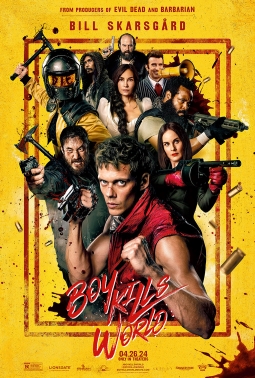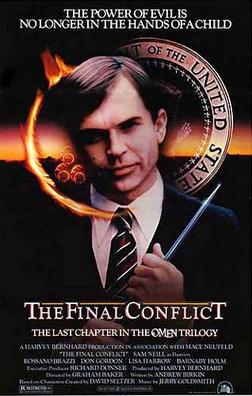THE FALL GUY
I think most of the audience who ventured to The Fall Guy were unaware of the 1980s television series on which it is loosely based. Very loosely based. So loosely based that it bears no resemblance save for the name and two quick cameos. The Fall Guy thinks it is an action romantic comedy. It fails spectacularly at each of those elements.
Colt Stevens (Ryan Gosling) has been the primary stunt double for action star Tom Ryder (Aaron Taylor-Johnson) for six years. Colt enjoys his job. He also finds himself drawn to Jody (Emily Blunt), a camerawoman on Ryder's latest film. A freak accident, however, has injured Colt both professionally and personally.
18 months later, Colt is essentially a recluse, working as a valet and withdrawing from everyone. Megaproducer Gail Meyer (Hannah Waddingham) finally tracks him down. She pleads with him to go to Australia and come out of retirement to double for Ryder on Metalstorm, his newest film. He reluctantly goes after learning that Jody, who is directing Metalstorm, personally requested him.
Once in Australia, he finds out two things. One: Jody not only did not request his services but was unaware that he had even been hired. Finding it too late to find anyone else, she reluctantly and somewhat bitterly accepts him. Two: Gail actually brought him to find Ryder, who is missing after a drug and alcohol bender. Soon, Colt finds himself escaping various drug dealers and is horrified to find a dead body in Ryder's room. Could it be Tom Ryder himself whose corpse is somehow missing?
Attempting to balance escaping various attempts on his life and solve this mystery while also working on his relationship with Jody and keep her cinematic dreams alive, Colt continuously dodges hits all over Sydney. With help from his friend, stunt coordinator Dan Tucker (Winston Duke) as well as Alma (Stephanie Hsu), Ryder's personal assistant, and even Ryder's French-comprehending dog, Colt discovers Ryder is not only very much alive but involved in nefarious business. Will Colt live to return in triumph as the Unknown Stuntman? Will Jody's movie be saved? Will Colt and Jody Moreno get back together?
I understand that The Fall Guy was crafted as a love letter to stunt men and women who go unrecognized by even filmmakers (there is a jab about there being no Academy Award category for Stunts). After seeing The Fall Guy, I would say it is less love letter and more poison pen letter.
As a side note, I continue to firmly oppose a Best Stunts or Stunt Directing category. I also oppose a Best Casting category, but I digress.
Drew Pearce's screenplay is shockingly disjointed and bloated. For example, once Colt arrives for location filming, he is put through take after take while Jody, directing for the first time, goes over their thwarted relationship as "direction" to her stunt man. I put aside for the moment the idea that a stunt man needs motivation for the character. What we could have wrapped up in one "take" instead goes to four "takes". That means we have to keep going on and on, seeing the same thing over and over while these two are openly talking about their troubled romance. Worse, in this section, we are getting flashbacks to something that The Fall Guy never built up.
We saw in the opening scene Colt and Jody being mildly flirtatious with each other. However, in this section, we were treated to scenes of what supposedly was their great love affair (or at least their fling). The audience would not have such information prior to this, so there is little emotional investment in seeing Colt and Jody together. Moreover, given how Metalstorm is the big break for "visionary director Jody Moreno", her taking up time in this expensive production to bemoan getting dumped by this himbo makes her out to be unprofessional.
As another side note, I do wonder how this very British woman can be "Jody Moreno". Is she Rita Moreno's London cousin? Maybe Alfred Molina's niece? How this daughter of Britain has a Hispanic surname The Fall Guy is never going to bother answering. I also do not get how anyone can be declared a "visionary director" on her/his debut film. Yes, it is a minor point to be fixated on, but there it is.
Director David Leitch, who started out as a stuntman himself, does not appear to understand that maybe less is more. We get, for example, a scene where Colt has a hard time with a hotel room key. We have all been there, and it might have worked if made into a quick montage. Instead, we have to have two long scenes of Colt struggling to use the malfunctioning key until he literally breaks the door down.
I am asked to believe that Colt can get thrown into Metalstorm and perform elaborate stunts on almost a minute's notice. The chariot race sequence in the 1959 Ben-Hur took a year of preparation and a combined five weeks to film. One or two cameras were accidentally destroyed during the filming. I am aware that technology has improved in these 65 years, but I doubt they have improved so much that any stuntman can jump in for big stunts almost right off the plane.
The Fall Guy is very disjointed as I mentioned earlier. We have more than one section where two events are going on that do not mesh. In the opening, we see Colt's encounter with someone he worked with and his call with Gail. The way it was edited, it was unclear when the valet's revenge took place: whether it was that very night or some time before. Later, we get what is supposed to be a major action sequence underscored by Jody, forever pining for Colt, belts out Phil Collins' Against All Odds (Take a Look at Me Now) to reveal how upset she is at Colt not showing up. At one point we see Colt literally passing by the karaoke bar where everyone is singing along to this power ballad. It is dumb.
Not that seeing a guy singing Genie in a Bottle is any less cringe-inducing.
There is another scene where it is a split screen between Jody and Colt where she consults him about using a split screen for Metalstorm. I figure this was meant to be meta, but it came across as far too clever for its own good. This constant self-referencing is maddening.
The worst is when we finally see a clip from Metalstorm. Jason Momoa in a cameo takes the Tom Ryder role. One would think it is because Ryder was arrested for the crimes he committed. No, in a mid-credit scene we find that the moron got himself blown up, then see Alma suddenly arrive and call for Momoa's agent. If that set up had been switched (we see Ryder's end and then seen Momoa), it would have worked and been funny. As it is in The Fall Guy, the joke loses its bite because we heard the punchline before we got the setup.
Hsu's entire character is emblematic of the shambles that is The Fall Guy. She just pops in, drops her MacGuffin, then disappears until the very last moment. Same for Iggy Starr (Teresa Palmer), Ryder's girlfriend who attacks Colt when he enters Ryder's apartment. Leaving aside for the moment how dim Jody is by never inquiring where her star is or Gail going through such machinations to frame Colt when anyone on set would have done, Iggy's attack is bizarre on so many levels.
Who is she? Why is she flinging swords at Colt? Is she Ryder's costar as well as lover? Is she unaware of Ryder's actions? Where did she go after this alleged bit of action comedy?
The Fall Guy has just such abysmal performances from almost everyone. The more I see of Gosling, the more I am becoming convinced that he not only cannot play comedy, but he pretty much has contempt for the genre. Every time he has played comedy, Gosling comes across as too self-conscious of how it is a comedy. I was not impressed with his comedic turns in Crazy Stupid Love, La La Land or Barbie, and in The Fall Guy he has the same issue Katharine Hepburn had when she played comedy.
Hepburn could do comedy: The Philadelphia Story, Bringing Up Baby, The African Queen. Granted, she had brilliant directors behind those films (George Cukor, Howard Hawks, John Huston), a list David Leitch has not been added to. However, when Hepburn played comedy poorly such as in The Iron Petticoat, she was always too aware that it was "funny", so she ended up forcing the humor. Similarly, Gosling too continuously makes one aware "this is FUNNY" and it ends up being anything but. There is a blankness in his eyes, a sense that his heart is not in it. He may be funny, but in The Fall Guy he is simply trying too hard. At one point he screams "You JINXED IT!", and in his performance, it seems he cannot decide to be serious or not.
Same with Blunt. To be fair, her character is a terrible one: the woman forever fixated on the man who never got back to her. Jody is not an independent and strong female, but a lovelorn fool who would sink her big break just to work out her relationship issues with a stunt man. The Fall Guy seems such a strange follow-up to their Oscar nominations for Barbie and Oppenheimer respectively. They have no chemistry together, making the romantic relationship between Colt and Jody ridiculous.
I can give grudging praise to Aaron Taylor-Johnson, channeling Matthew McConaughey accent and all as the whacked-out Tom Ryder. It was by no means a great performance, but it was not a great character, so I cut him some slack.
The Fall Guy is just terrible. I do not remember the television show (despite the cameos from The Fall Guy's Lee Majors and Heather Thomas). I will wager, however, that the television show is better and more entertaining.
_poster.jpg)

























